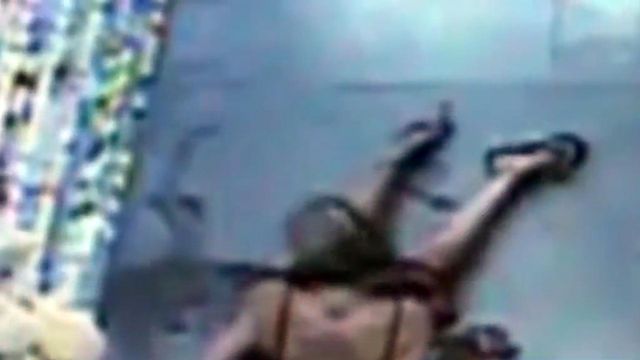Insurance fraud costs customers hundreds of dollars a year
From faked falls and car accidents to complicated billing schemes, insurance fraud is big business.
There are some estimates insurers pay out $120 billion a year in bogus insurance claims. Those payouts cause premiums to rise for customers by as much as $700 a year.
North Carolina Insurance Commissioner Mike Causey said his office receives 400 to 500 claims of fraud every month, "mostly referred to us by national insurance companies."
But when Causey took office in 2017, he said he quickly learned that the Department of Insurance's investigative staff couldn’t handle the workload.
"I was disappointed to learn that we were only able to investigate 12 percent" of the complaints, he said.
One case state insurance investigators did go after involved a Robeson County woman who was caught on a security camera squirting baby oil on the floor of a Walmart in Red Springs in 2013. She then circled the aisle, came back and fell.
Sabrina Hammonds eventually pleaded guilty to insurance fraud and received probation. She said in a phone interview that she was struggling back then and needed money, adding that she wants to put the incident behind her and be a good mother to her children.
"It comes down to some of these people are desperate for money," said Marty Sumner, who oversees the DOI’s investigate team, which recently doubled in size from 20 to 44.
Investigators are all certified law enforcement and range from special agents to crime analysts, forensic accountants and attorneys.
"They support the local DAs, and they specifically go in and prosecute insurance fraud cases, which is a huge advantage," Sumner said.
Insurance fraud comes in all shapes and sizes, from falsified crash reports that paid out a few hundred dollars to complex Medicaid schemes where perpetrators can net millions.
A truck and a minivan were supposedly involved in a collision, for example, but investigators realized the damage didn't match up and filed charges.
Sumner said his team is also investigating a small locomotive, a steam engine that was reported stolen twice. Insurance paid out after the first report.
"When it was reported to us and we actually started to conduct an investigation, we find out it never actually occurred. It wasn't stolen," he said.
Recently, investigators uncovered a bogus Greenville medical transport company that bilked Humana Insurance and Medicare out of $4.7 million. Pamela Babb and Davon Henderson pleaded guilty to billing for ambulance rides that never happened.
Sumner said that case is a glaring example of fraud that costs everyone.
"The insurance company is not the real victim. They’re going to pass that on to the customer," he said.
"Out of every dollar we're paying for insurance premiums, close to 20 cents of that is going to cover fraud," Causey added.
With the increased staff and investigations, DOI wants to send a stronger enforcement message to criminals. People can forward tips on suspected insurance fraud on the agency's website.
Still, Sumner said, the vast majority of fraud isn't caught.
"Eighty percent of the time I do this, it’s not going to be detected, it’s not going to be reported," he said.














